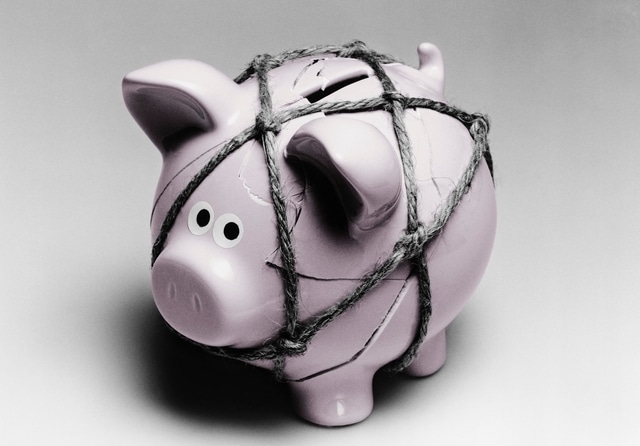Why You Should Start Saving for a Rainy Day: The Importance of Financial Preparedness
In today’s uncertain economic climate, it is more important than ever to prioritize financial preparedness and start saving for a rainy day. Whether it be a sudden job loss, unexpected medical expenses, or a natural disaster, having a financial cushion can provide much-needed stability and peace of mind during times of crisis.
One of the key reasons to start saving for a rainy day is to protect yourself against unforeseen emergencies. Without a savings buffer, you may find yourself struggling to cover essential expenses or forced to rely on high-interest credit cards or loans to make ends meet. By setting aside a portion of your income each month, you can build a financial safety net that can help you weather unexpected financial storms.
In addition to providing a safety net in times of crisis, saving for a rainy day can also help you achieve long-term financial goals. Whether you are saving for a major purchase, retirement, or your children’s education, having a solid savings foundation in place can set you on the path to financial security and success.
Furthermore, saving for a rainy day can help you avoid the stress and anxiety that often comes with financial uncertainty. Knowing that you have a financial cushion to fall back on can provide a sense of security and empowerment, allowing you to focus on other aspects of your life without constantly worrying about money.
In conclusion, the importance of financial preparedness cannot be overstated. By starting to save for a rainy day now, you can protect yourself against unforeseen emergencies, achieve your long-term financial goals, and reduce the stress and anxiety that often comes with financial uncertainty. So, make it a priority to prioritize saving and build a solid financial foundation for the future.
Creating a Financial Safety Net: How Saving for a Rainy Day Can Provide Peace of Mind
In today’s unpredictable economic climate, it is more important than ever to establish a solid financial safety net. Setting aside funds for unexpected expenses, emergencies, or unforeseen circumstances can provide a sense of security and peace of mind. By creating a savings account specifically designated for these purposes, individuals can ensure that they are prepared for any financial challenges that may arise.
One of the key benefits of having a financial safety net is the ability to weather unexpected financial storms without having to rely on high-interest credit cards or loans. By saving a portion of income each month, individuals can build up a cushion that can be tapped into in times of need. This can prevent individuals from falling into debt or facing financial hardship when faced with unexpected expenses such as medical bills, car repairs, or job loss.
Additionally, having a financial safety net can provide a sense of stability and control over one’s financial future. Knowing that there are funds set aside for emergencies can alleviate stress and anxiety about potential financial crises. It can also provide a sense of empowerment, as individuals are able to take control of their financial well-being and plan for the future with confidence.
In order to create a financial safety net, it is important to establish a budget and set savings goals. By tracking expenses and prioritizing saving, individuals can gradually build up their emergency fund over time. It is recommended to aim for saving at least three to six months’ worth of living expenses in a designated savings account.
In conclusion, creating a financial safety net through saving for a rainy day can provide peace of mind and financial security. By prioritizing saving and establishing a cushion for unexpected expenses, individuals can protect themselves from financial hardship and gain a sense of control over their financial future. It is never too late to start saving for a rainy day, and the benefits of having a financial safety net far outweigh the effort required to build it.
The Benefits of Having an Emergency Fund: Why It’s Important to Save for Unexpected Expenses
Having an emergency fund is an important aspect of financial planning that many individuals overlook. An emergency fund is a savings account specifically designated for unexpected expenses, such as medical emergencies, car repairs, or job loss. While it may seem unnecessary to set aside money for unforeseen circumstances, having an emergency fund can provide peace of mind and financial security in times of crisis.
One of the primary benefits of having an emergency fund is that it helps to protect against unexpected expenses. By having a designated fund set aside for emergencies, individuals can avoid going into debt or having to rely on high-interest credit cards to cover unexpected costs. This can help to prevent financial stress and hardship in times of crisis.
Additionally, having an emergency fund can provide a sense of security and stability. Knowing that there is money set aside for unforeseen circumstances can help individuals feel more confident in their financial situation and better equipped to handle unexpected expenses. This can lead to improved mental and emotional well-being, as well as a greater sense of financial control.
Having an emergency fund can also help to prevent financial setbacks and disruptions in the event of an emergency. By having money set aside for unexpected expenses, individuals can quickly address and resolve issues as they arise, without having to scramble to come up with funds or make difficult financial decisions. This can help to maintain financial stability and prevent long-term negative impacts on credit and savings.
In conclusion, having an emergency fund is a crucial aspect of financial planning that can provide numerous benefits. By setting aside money for unexpected expenses, individuals can protect against financial hardship, improve their sense of security and stability, and prevent setbacks in times of crisis. It is important to prioritize saving for emergencies and to regularly contribute to an emergency fund to ensure financial security and peace of mind.
Protecting Your Future: The Importance of Building a Financial Safety Net
In today’s uncertain economic climate, it has become increasingly important for individuals to prioritize building a financial safety net. This safety net serves as a cushion in times of financial hardship, providing a sense of security and peace of mind for the future. By establishing a solid financial foundation, individuals can protect themselves and their loved ones from unexpected expenses, job loss, or other unforeseen circumstances.
There are several key components to consider when building a financial safety net. One of the most important aspects is having an emergency fund in place. This fund should ideally cover three to six months’ worth of living expenses, including rent or mortgage payments, utilities, groceries, and other essential costs. By setting aside a portion of your income each month into a dedicated savings account, you can ensure that you have a financial buffer to fall back on in times of need.
In addition to an emergency fund, it is also important to have adequate insurance coverage to protect against potential risks. This may include health insurance, life insurance, disability insurance, and other forms of coverage that can help mitigate financial losses in the event of illness, injury, or death. By carefully assessing your insurance needs and securing the appropriate policies, you can safeguard your financial well-being and that of your family.
Furthermore, building a financial safety net also involves creating a budget and sticking to it. By tracking your income and expenses, you can identify areas where you can cut back on spending and increase savings. Setting financial goals and regularly reviewing your progress can help you stay on track and ensure that you are making steady progress towards achieving financial security.
In conclusion, building a financial safety net is essential for protecting your future and ensuring long-term financial stability. By establishing an emergency fund, securing adequate insurance coverage, and maintaining a budget, you can safeguard yourself and your loved ones from unforeseen financial challenges. Taking proactive steps to build a strong financial foundation now can help you weather any storms that may come your way in the future.
Don’t Get Caught in the Storm: How Saving for a Rainy Day Can Help You Weather Financial Challenges
In today’s unpredictable economic climate, it’s more important than ever to have a financial safety net in place. Unexpected expenses can arise at any moment, from medical emergencies to car repairs to job loss. Without a savings cushion to fall back on, you may find yourself struggling to make ends meet.
Saving for a rainy day is a crucial part of financial planning. By setting aside a portion of your income each month, you can build up a reserve that can help you weather any financial storms that come your way. Whether it’s a short-term setback or a long-term crisis, having savings can provide you with peace of mind and security.
One of the key benefits of saving for a rainy day is that it allows you to avoid going into debt when unexpected expenses arise. Instead of relying on credit cards or loans to cover the cost of emergencies, you can use your savings to pay for them directly. This can help you avoid accumulating high-interest debt and protect your credit score.
Having savings also gives you the flexibility to handle financial challenges without having to make drastic lifestyle changes. Whether it’s a sudden drop in income or a major expense, having a financial cushion can give you the time and space you need to come up with a plan and make informed decisions about how to move forward.
In addition to providing financial security, saving for a rainy day can also help you achieve your long-term financial goals. Whether you’re saving for a down payment on a home, funding your children’s education, or planning for retirement, having a solid savings foundation can help you reach these milestones with confidence.
In conclusion, saving for a rainy day is an essential part of financial planning. By building up a reserve of savings, you can protect yourself from unexpected expenses, avoid going into debt, and achieve your long-term financial goals. Don’t get caught in the storm – start saving today to ensure that you’re prepared for whatever the future may bring.



